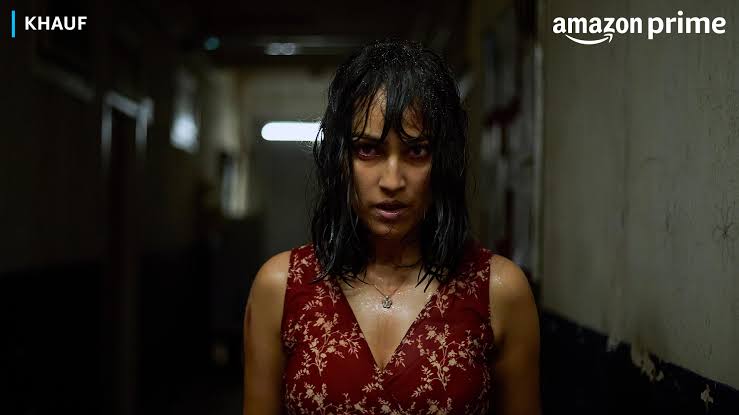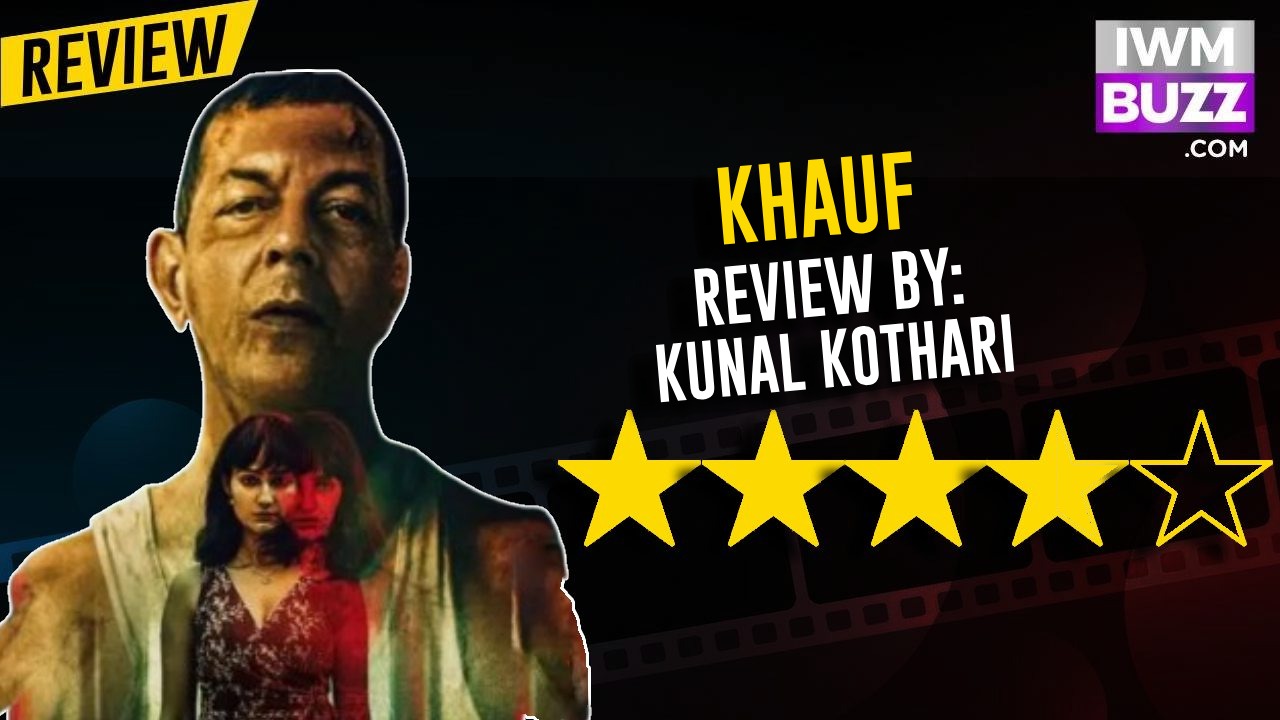Khauf (Streaming on Amazon Prime)
Rating – ****(4/5)
Cast: Rajat Kapoor, Geetanjali Kulkarni, Monika Panwar, Chum Darang, Gagan Arora, Abhishek Chauhan & more
Directed by: Pankaj Kumar & Surya Balkrishnan
Created & Written by: Smita Singh
To christen a show Khauf and deliver on that promise so literally is bold in itself—but to metaphorically, cinematically, and wholly embody it in unprecedented ways is a creative feat of the highest order. Creator and writer Smita Singh, in collaboration with directors Surya Balkrishnan and Pankaj Kumar, has pulled off something audacious, complex, and thoroughly compelling—and how.
Khauf wastes no time setting the tone. It opens in a chilling, dimly lit alleyway with a woman, Anu, returning to her hostel dorm during the late hours of a weekend night. There’s an ominous presence—a hint of someone following her, stalking her every step. Where are we? Of course, it’s Delhi. And with that, we’re introduced not just to horror as a genre trope, but to the most insidious, everyday kind of fear that women live with—fear that simmers, follows, and sometimes violently erupts. This is merely the beginning—what seems like a prototypical horror beat quickly transforms into a far more intricate web of trauma, memory, and psychological decay.

At its core, Khauf is Madhu’s story. Played with delicate precision by Monika Panwar, Madhu has moved from Gwalior to Delhi with the help of her boyfriend, Arun. But what she doesn’t realize is that the hostel room she’s now occupying—and the people orbiting around her—will conspire to unravel her. Parallel plots simmer beneath the surface, seamlessly woven into the central narrative, elevating the experience into something layered, tense, and impossible to pin down. But to reveal any more would be to commit the cardinal sin of spoiling a slow-burn thriller that thrives on the unsettling unknown.

It explores a multitude of ideas—gendered violence, societal alienation, psychological trauma—without monologues or forced moralizing. The messaging is subtle, yet lands with seismic impact.
It becomes instantly clear that this is a script penned by someone who co-wrote Sacred Games. The narrative is riddled with nuance—each passing scene loaded with layers that aren’t always visible but are felt. The show leans heavily into the slow-burn format; the first three episodes unfold at a deliberate pace that might test your patience. It’s an investment of nearly two hours with little immediate payoff—and yet, that’s the point. The show isn’t in a rush to prove itself, and it asks the same of you. Hang in there. Khauf is one of those rare series that rewards the patient viewer with a payoff that’s not just worth it—it’s unforgettable.

What sets Khauf apart is its refusal to spoon-feed its themes or underline its intentions. It explores a multitude of ideas—gendered violence, societal alienation, psychological trauma—without monologues or forced moralizing. The messaging is subtle, yet lands with seismic impact. This is screenwriting at its most respectful—intelligent, subtextual, and emotionally surgical.
The performances are uniformly excellent, but the veterans—Geetanjali Kulkarni, Rajat Kapoor, and Shalini Vatsa—get material that allows them to absolutely devour the screen. Kulkarni, in particular, is a revelation. She plays a character so unsettling, so thoroughly unlikable, that you might forget this is the same actor who melts your heart in something like Gullak. The tonal shift in her performance is staggering—and a testament to her range.
Oh, and yes—this is horror-horror. Not the cheap, overproduced, cliché-ridden variety with predictable jump scares and screechy violins. The scares in Khauf are genuine.
Perhaps the biggest triumph—and simultaneously the most contentious aspect—of Khauf is how visceral it gets. There is violence, unflinching and gruesome. There is gore that hits you in the gut. And there is horror—both psychological and supernatural—that breaks through the fourth wall, making you feel as though you’re not watching a fictional narrative, but experiencing something far too real. The punches, the blood, the fear—it’s all too convincing. And while that realism is a major highlight, it can also feel overwhelming, even nauseating. But maybe that’s the point. Perhaps the creators want you to flinch, to recoil, to be deeply disturbed—because this horror isn’t just for entertainment. It’s a reckoning.
Oh, and yes—this is horror-horror. Not the cheap, overproduced, cliché-ridden variety with predictable jump scares and screechy violins. The scares in Khauf are genuine. They crawl under your skin and nest there. And despite its relatively intimate setting, the show never falters on the technical front. The VFX, sound design, and cinematography work in symphonic sync with the vision of the directors. Together, they elevate an already-solid script into a fully realized audio-visual nightmare.
Yes, there are flaws. Some threads dangle a little too loosely. Some plot layers border on indulgence. There are stretches where the narrative luxuriates in itself, possibly a tad too much. But these missteps are small potholes on an otherwise gripping ride. The emotional, thematic, and narrative payoffs remain intact.
What truly anchors the show is its cast of young, fiercely talented actors. Monika Panwar as Madhu is a standout, delivering a performance that is raw, restrained, and terrifyingly human. Chum Darang as Svetlana and Gagan Arora as Nakul are equally compelling, bringing authenticity and depth to roles that could have easily veered into stereotypes. Every character serves the larger cause here—a cause rooted in storytelling of the highest order.
And then there’s the music. Alokananda Dasgupta continues to be one of the most underrated artists working today. Her background score in Khauf is nothing short of haunting genius. It lurks, it soars, it whispers things you don’t want to hear. Her sonic choices elevate the atmosphere from tense to transcendent.
Khauf is the kind of show that comes in quietly, sans the noise of celebrity casting or marketing blitzes—and then explodes. Whether it finds the audience it deserves remains to be seen. But it deserves to be seen. This is genre storytelling that’s intelligent, inventive, and indelible. Add Khauf to your watchlist immediately. It might just leave you reeling, wrecked, and weirdly grateful.


